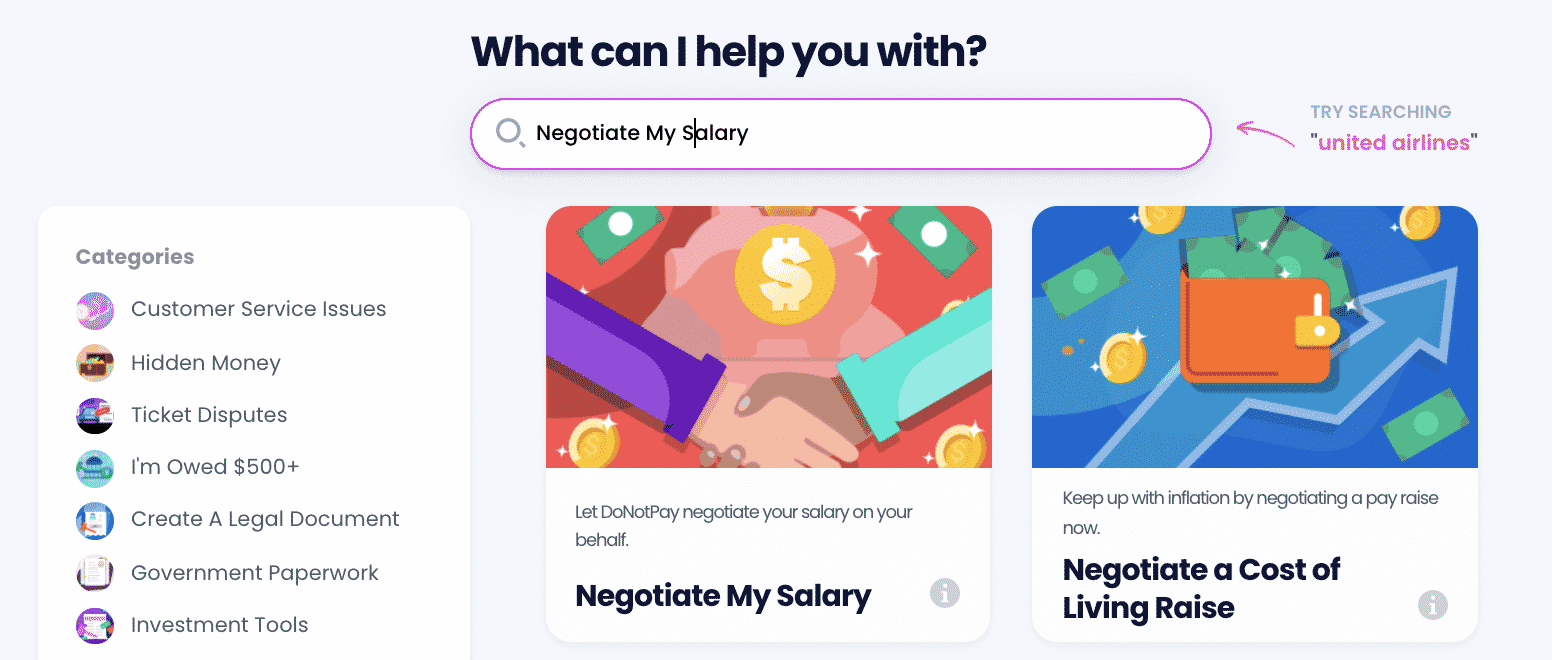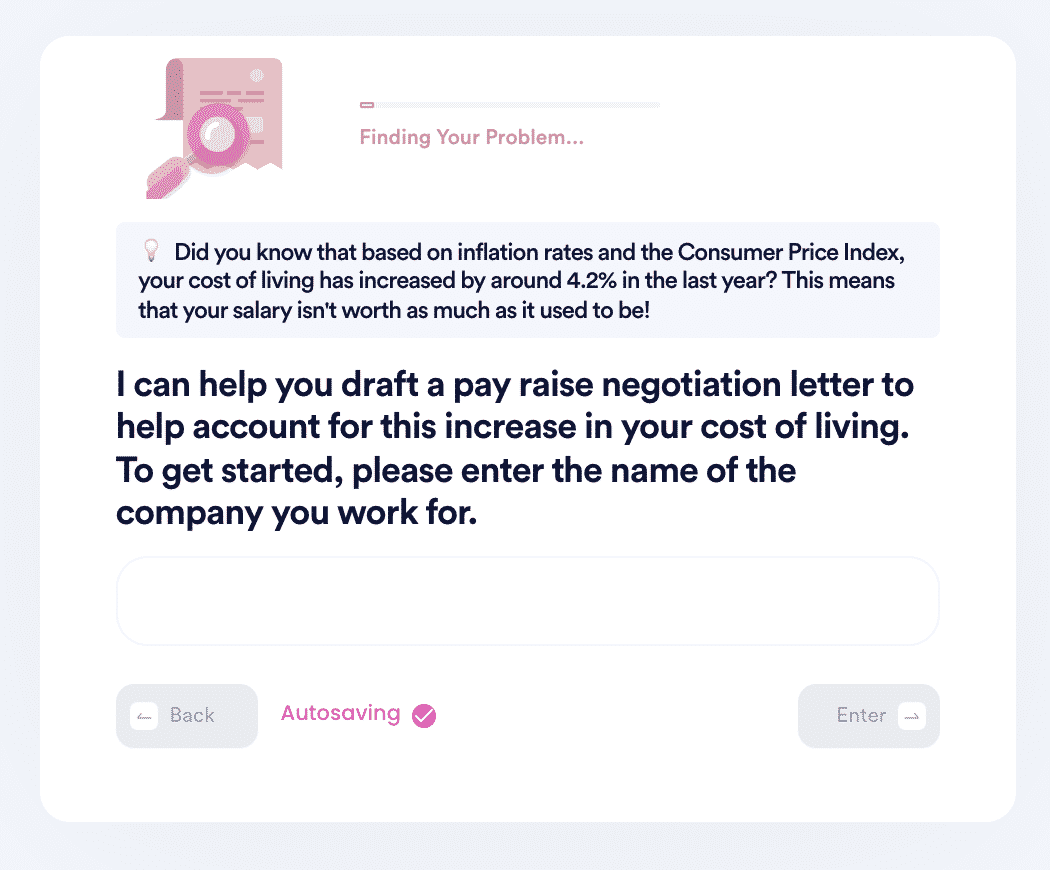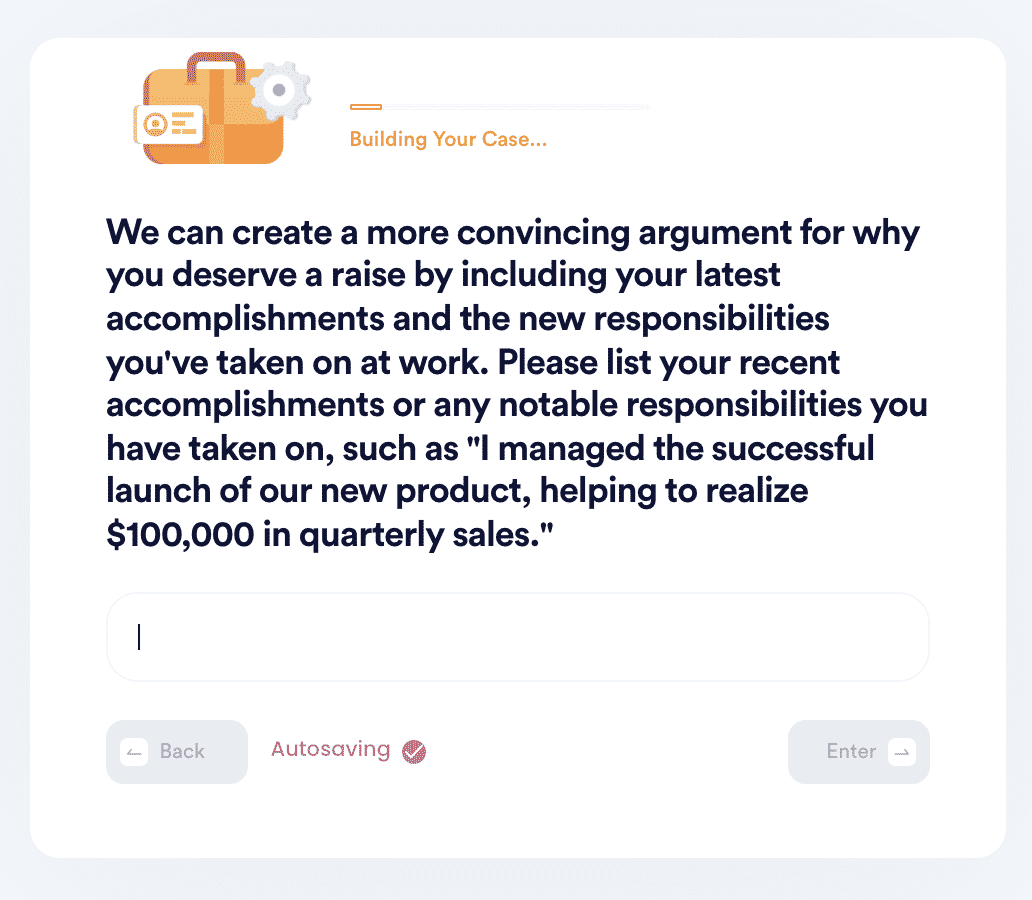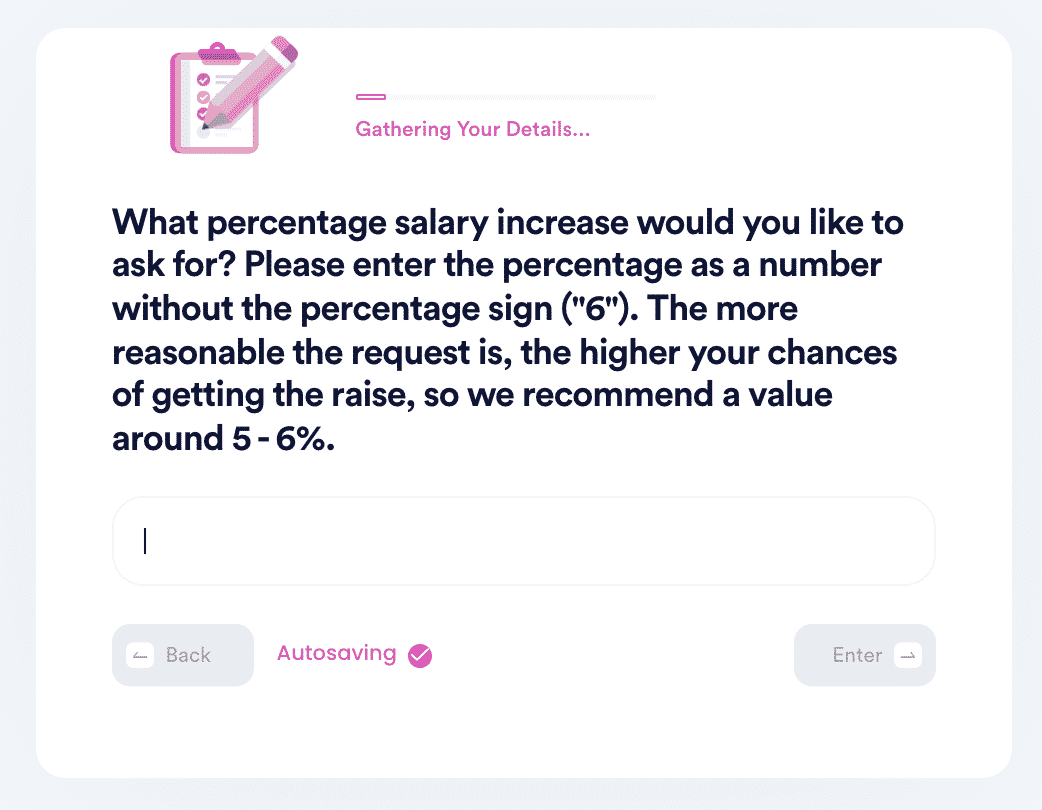Smart Internship Salary Negotiation Tactics You Have to Know
Getting a permanent job offer as your internship draws to a close is exciting. However, it can also be overwhelming, especially if you're unfamiliar with the .
If you don't know how to ask for more money while you're interning, or you don't know how to ensure you get paid what you're worth when you go full time, you're in the right place. In this all-encompassing guide, we'll advise you on how to negotiate your pay by email and over the phone. Then, we'll advise you on how all it takes is four quick and easy steps with the help of DoNotPay.
3 Ways to Start the Internship Salary Negotiation Process
Even before an intern starts their international internship, they face a lot of expenses. Before earning any pay, these interns end up paying out of pocket for:
| Visa and passport fees | For applicants with internships in the U.S., interns will need to pay the U.S. State Department’s J-1 visa application fee and U.S. Immigration and Customs Enforcement’s SEVIS registration fee. If they do not have a passport, the intern must also pay for one from their home country. |
| Travel | Unless your intern is local, the intern will need to pay for airfare to your location. |
| Housing | An intern will need to lease an apartment or house. And, if the internship is shorter, rent for a short-term lease could be substantial. |
| Health insurance | Interns must have health insurance to receive a J-1 visa. Many international interns come from countries where health insurance is administered by the government. The costs associated with buying private insurance in the U.S. can be very high or something that the intern is unaccustomed to. |
| Living expenses | The intern will require essentials while in the U.S., including transportation and food. |
There are several ways you can initiate the process. For instance, you can:
- Visit your supervisor at their desk if you are both working in-person
- Email your intern to full-time salary negotiation terms
- Ask for a raise over the phone
Tips for Negotiating Your Salary Over the Phone
If you plan to negotiate your salary over the phone, make sure you do it at a convenient time for your employer. Ideally, you should schedule this time in advance, so they are not surprised. Other tips include:
- Articulating your value to the company clearly
- Smiling while talking
- Taking notes of your talking points (especially quantitative data) ahead of time
- Knowing what you'll accept and what you're willing to walk away from
How Often Should You Get a Raise?
You've probably heard the advice that you shouldn't ask for a raise in the first six months of working at a new job. That said, you may not be aware of how often you should ask for a raise.
As a general rule, you should only ask for a raise once per year. The best time to ask for a raise is usually during your annual performance review, so you can highlight all of the benefits you've provided the company at a convenient time for your supervisor. That said, if you don't have a performance review coming up any time soon, you should consider asking for a raise now if:
- You were recently offered a promotion
- The scope of your job duties has increased drastically
- You have not even received a COLA (cost of living allowance) increase
How Much of a Raise Should I Ask for?
One of the hardest parts of the salary negotiation process is knowing how much of a raise to ask for. Some companies don't offer annual raises. Others only offer annual raises ranging from 3 to 5%.
That said, you should strongly consider asking for a raise ranging from 10 to 20%. For one thing, inflation is skyrocketing now with no signs of slowing down. You need to make sure that you can maintain your lifestyle comfortably, even as increasing fuel prices increase the cost of almost everything else.
Another thing to consider is that the U.S. Bureau of Labor Statistics estimates that demand for software engineers will increase by 22% by 2030. In other words, software engineers are in very high demand.
What if My Employer Has Sticker Shock?
You can feel pretty trapped in a sticky situation if your employer balks at your salary increase negotiation, but you want to work for them. Consider asking for benefits that increase your total compensation package. For instance, you may consider negotiating:
- Health, dental, and vision insurance benefits
- Paid time off
- Remote work
- Retirement
- Life insurance
For instance, working remotely saves you a lot of money, partially making up for any salary increase that you don't get. Perhaps more importantly, not commuting means you have more time to spend focusing on the things that matter most.
Need Help With Your Internship Salary Negotiation? DoNotPay Has Your Back
Do you feel a lump in your throat every time you think about going to HR or your supervisor about a salary negotiation? Do you feel your mind going blank when you open an email draft to negotiate the terms of your full-time employment? If so, open up DoNotPay, and have your salary increase request drafted for you in just a few minutes.
- Search "negotiate my salary" on DoNotPay.

- Enter the name of your company and the industry you work in, so we can find the right wage statistics for your role.

- Answer a series of questions regarding your qualifications and achievements, relocation expenses, and other job offers if applicable.

- Enter the new base salary you would like to request.

After that, you just need to email the request to your supervisor and HR manager.
What Else Can DoNotPay Do for Me?
DoNotPay is the only resource you will ever need if your goal is to get a raise. For instance, we can help you if you're wondering:
- Whether you should negotiate your salary
- The best way to ask for a raise
- Wondering what the most effective ways to negotiate a salary increase are


